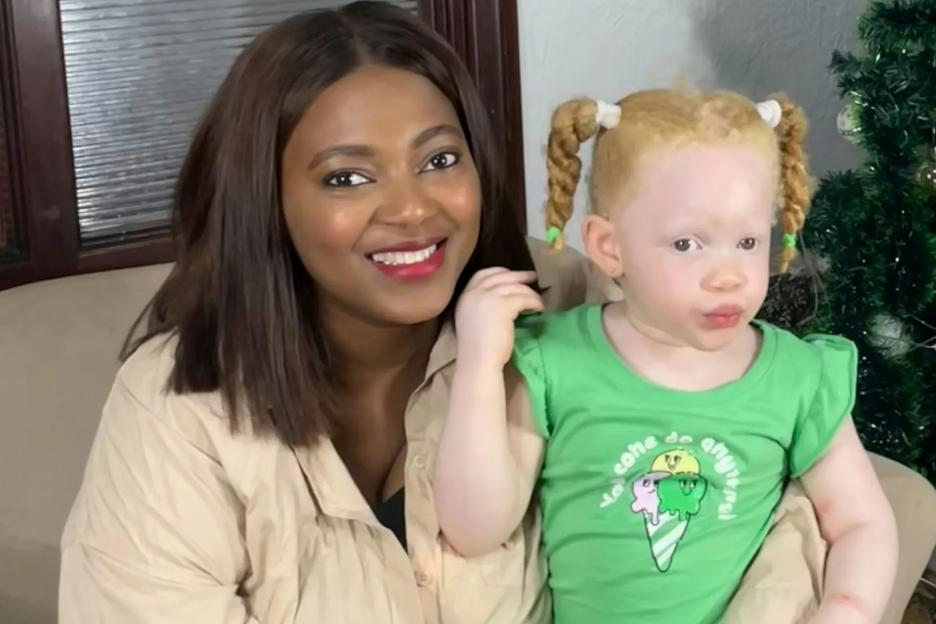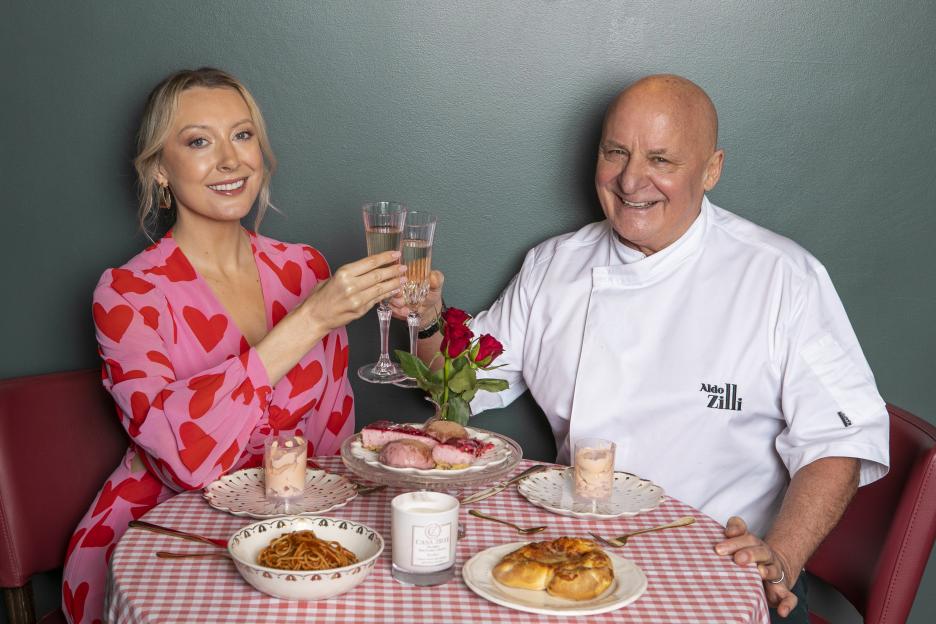A MUM has revealed how strangers accused her of cheating on her husband after her daughter was born with a different skin colour to the rest of the family.
Belvana Abeli’s, daughter, Zayana Domingos, two, was born with albinism and has light skin, hair and eyes, while her parents and two other siblings are black.
 Belvana Abeli was accused of cheating on her husband when she gave birth to her daughter Zayana Domingos (seen together)
Belvana Abeli was accused of cheating on her husband when she gave birth to her daughter Zayana Domingos (seen together)
 But the little girl was born with albinism which causes her to have light skin, hair and eyes
But the little girl was born with albinism which causes her to have light skin, hair and eyes
The 36-year-old explained how her daughter is regularly discriminated against for looking different, with strangers asking if she is adopted and have even accused Belvana of cheating on her husband due to how their daughter looks.
Belvana, from Cape Town, South Africa, said: “The reaction to her having albinism was really well within our family but externally, there were a lot of questions.
“People have questioned whether I cheated on my husband with a white person – it’s a lot to deal with.
“People will ask things about why my one daughter is black and the other is white or ask if she’s adopted.
“It’s offensive, but people unconsciously do it.”
After suffering with Covid-19 during her pregnancy, the mum had to have an emergency C-section at just 28 weeks.
When she saw her newborn baby for the first time, Belvana was left questioning why her baby had a different skin colour and ginger hair.
However, after genetic testing, doctors confirmed Zayana had been born with albinism, a life-long condition.
Initially, the mum-of-three was unsure whether there was any family history of the condition and later learned that her grandmother’s great-uncle had albinism and also suffered from discrimination.
“Giving birth to an albino baby was a surprise as albinism was not known to run in any of our families,” she says.
“Doctors initially said her skin and hair would darken with time, but after a few days in hospital, we were informed that she had albinism.
“As time went by her skin and eyes got lighter and lighter. We already had a black daughter and weren’t expecting an albino baby at all.”
Zayana has two siblings, one older sister and one younger brother who are both black.
Zivah Domingos, five, is the eldest of the trio whilst Zander Domingos, five months, is the youngest.
People with albinism will often suffer from a lack of vision due to the reduced amount of melanin in the layer of cells in the eye as well as having a higher risk of sunburn and skin cancer.
After falling pregnant with her third baby, Belvana was curious as to what colour skin her next child would have after having an albino baby.
She consulted the doctor to see if there were any tests that could be done to determine the possible albinism. Although she didn’t mind, Belvana wanted to minimise any possible shock.
Speaking about her ‘miracle’ albino baby, Belvana adds: “Having an albino child has been challenging at times due to the lack of education about albinism, for example, being told that our daughter needs a special school because albinism is a disability.
 The couple hadn’t realised that there had been a history of albinism on Belvana’s side of the family
The couple hadn’t realised that there had been a history of albinism on Belvana’s side of the family
 Belvana says that people often ask if she is adopted which she does find offensive
Belvana says that people often ask if she is adopted which she does find offensive
“But it has also been a great blessing to us because it has given us the opportunity to share our story and increase knowledge about albinism.”
Her eldest daughter, Zivah, has started to ask questions about why her little sister looks different to the rest of the family.
She added that Zayana is too young to question her looks, but her mum knows that the questions will be asked when she gets older.
WHAT IS ALBINISM?
Albinism is an inherited genetic condition where people are born without any kind of pigment in their body.
Their body is unable to produce melanin (which gives you colour), and can affect the skin, eyes and hair.
This causes those who are born an albino to have very pale skin, eyes and hair, and the condition can affect all races.
There are two main kinds of albinism, which are oculocutaneous albinism and ocular albinism.
Albinism affects around one person in every 20,000.
“When I was pregnant with my son, my daughter was asking me if he was going to be white or black,” she says.
“My eldest is coming to a point where she’s starting to understand that Zayana is different to others in the family.
“But, she is our miracle baby, and we are super fortunate to have her in our lives.”
 Belvana describes Zayana as her miracle baby
Belvana describes Zayana as her miracle baby 






